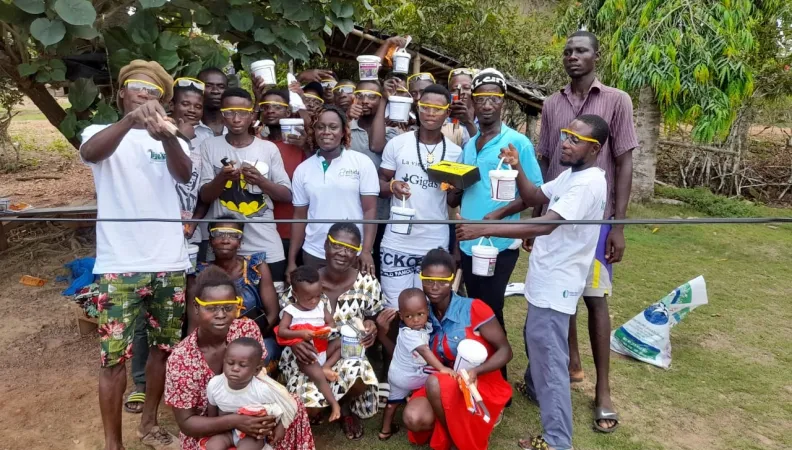Share the page
Territorial Approach: A Lever for Socio-environmental Resilience (NITIDAE)
Project


-
Project start date
-
Status
In progress
-
Estimated date of project termination
-
-
Project financing date
-
-
Financing duration
-
4 years
-
Type of program
-
FFEM
-
Global financing amount
-
10 500 000 €
-
FFEM financing amount
-
2 100 000 €
-
Project lead member institution(s)
-
AFD, Ministry of the Ecological Transition, Biodiversity, Forests, Sea and Fisheries
-
Country and region
-
Ivory Coast
-
Type of financing
-
Grant
-
Partners
-
EU
-
Beneficiaries
-
Nitidae, Ministère de l’Environnement et du Développement durable de Côte d’Ivoire (MINEDD)
Due to increasing anthropogenic pressures, three African landscapes of high biodiversity importance face a threatened future. To support the affected ecosystems and communities, this FFEM-backed project strengthens the resilience of protected areas through an innovative approach.
Context
The rural territories of the Mé and Mont Tingui biodiversity areas in Côte d’Ivoire, along with the Pô-Nazinga-Sissili ecological complex (PoNaSi) in Burkina Faso, are facing increasing anthropogenic pressures. The resulting deforestation and forest degradation threaten the health of the critical ecosystems they host. As a result, the future of local communities who rely on these ecosystems for food, energy, and income is at risk.
In this context, the FFEM-supported project aims to strengthen the “landscape” approach already underway in these three protected areas and their surrounding zones. The goal is to formalize the tools needed to develop zero-deforestation value chains that reconcile sustainable development with the preservation of natural resources.
Outcomes
The project is built around four key components:
- Strengthening participatory territorial planning that incorporates biodiversity conservation challenges, by fostering structured dialogue and providing concrete responses to key land tenure issues.
- Reinforcing the management of protected areas and developing innovative methods for biodiversity monitoring and surveillance within the targeted landscapes.
- Engaging producers and stakeholders in agricultural value chains across the project areas through a comprehensive and critical approach aimed at promoting deforestation-free agriculture.
- Measuring the project’s environmental impact and developing a “Zero Deforestation Territory” framework to replicate and scale up the proposed initiatives.
Outcomes
- Establishment of a monitoring and evaluation system, including a geoportal, for the three target zones.
- Implementation of sustainable and responsible forestry practices in each of the three landscapes.
- Development of the Regional Planning and Sustainable Development Scheme for the Tchologo region.
- Awareness-raising among ten mayors in the PoNaSi area on the importance of shared governance.
- Creation of a sustainable financing mechanism to implement local development plans in the Tchologo and Mé regions.
- Construction of 170 kilometers of transhumance corridors in the Mont Tingui area.
- Recruitment of 30 eco-guards in the PoNaSi complex.
Innovative & exemplary character
The project is innovative in that it proposes a large-scale experimentation aimed at deepening an emerging approach. Its main innovation lies in the integrated and coordinated implementation of ambitious biodiversity conservation actions alongside support for profitable agricultural value chains.
By drawing on local knowledge, skills, and practices, the program will help disseminate and promote existing yet often underutilized expertise.
The development of a toolbox to support zero-deforestation agricultural value chains marks a new step toward their emergence. Lastly, the creation of a framework to shift from a value chain-based approach to a landscape-based approach to combat deforestation represents a groundbreaking advancement.


